A third-year law student recently reached out to me, reflecting on the influx of anti-Asian hate in our country during the COVID-19 pandemic. It concerned her a great deal, but she said she felt safe here in Iowa. She asked if I would consider sharing her story and the stories of other Asian Americans in the Iowa Law community to highlight their experiences.
“It would be a great representation during this time for Iowa Law if you could consider including some Asian American law students’ stories or interviews so potential students who might not have considered Iowa, would come here knowing they are safe here,” she stated in her email.
I was happy she reached out and we set up a time to discuss. She sent her email on March 12.
Four days later, there was a series of mass shootings in Atlanta. The shootings took place at popular spas in the area killing eight people—six of them were Asian women. This tragedy brought new light to the long-standing violence and harassment towards Asian Americans, making it even more important to highlight the stories and perspectives from our community.
Hate isn’t new to many in the AAPI community, yet this year is proving to be especially tough. Reported hate incidents targeting Asian Americans have seen a dramatic rise year over year, based on data from Stop AAPI Hate.
“No one should have to feel the pain of racial injustice, and we must stand together against it. As the President said over the weekend: “Hate can have no safe harbor in America. It should have no safe harbor anywhere in the world. We must join together to make it stop.” In that spirit, the Iowa Law community stands with all of the members of our community who have felt the sting of racial prejudice,” said Iowa Law dean Kevin Washburn in his statement after the tragedy in Atlanta.
The law students at Iowa Law are future leaders and lawyers, with the desire and commitment to make this world a better and more just place. A part of that is having empathy and working to understand the diversity and complexity of all individuals living in Iowa, the United States, and beyond.
We asked six members of the Iowa Law community to share their stories.
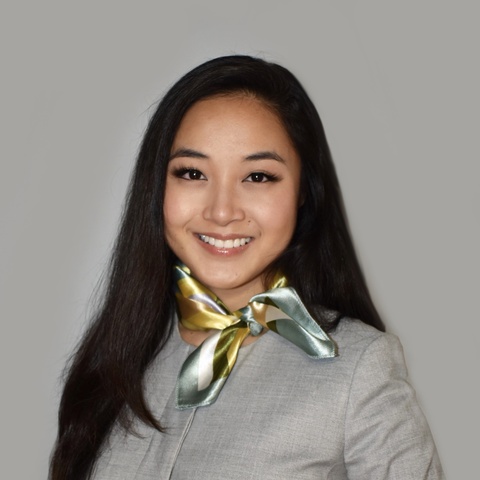
Sijia Chen | 3L Law Student | University of Iowa College of Law
I didn’t really have any aspiration for higher education growing up. Neither one of my parents even finished grade school, but they always pushed me towards not only education but an occupation that help others. When I got to high school, my mother started to tell me about my family’s history in China and how both of my grandparents were put through sham trials and served extensive time in prison, and that my great-grandfather was actually the victim of a forced disappearance by the Chinese Communists. After hearing those stories I had a lot of doubt and fear towards the law, since my family experienced first-hand what it’s like when the law and legal system is arbitrary. But I also dreamt of times when the law can be used for good.
I attended the United States Air Force Academy for undergrad, and I had the opportunity to take some classes with military attorneys (JAGs) and their passion for their job was fascinating. I was always determined to be a force for good without exactly knowing how, but I decided then, that I was going to use my force to protect others using the law. After a long selection process, I was selected by the Air Force to attend law school and come back as a JAG upon graduation.
Being an immigrant myself, I chose to serve because I wanted to give back to the country that has given me everything. By being a JAG I get to continue that service and also help other service members who put their lives on the line for our country. Given my family’s experience, I want to ensure that fairness and justice are applied to every decision I make as a JAG, and applied to support military commanders’ decisions. Service members are tried and judged within the military legal system, and I want to make certain they are given all the rights and due process they are promised, from the same Constitution they sworn to protect.
To me, being Asian American means being American. My ancestors were Chinese, but I do not identify as anything other than American. Sometimes, it feels like Asian Americans are caught in the crossfire of feeling the need of holding on to Asian culture as part of our identity or having to assimilate to fit in by denying Asian culture. Staying connected to Asian culture and being American, are not mutually exclusive. I am an American and it is my right to choose how I live my life and pursue my happiness.
The pandemic brought a lot fear and uncertainty into everyone’s lives. What began as people avoiding me in grocery stores, turned to more and more news coverage about people targeting Asian Americans with hate speech and violence. That is terrifying. Fortunately, I have not had any negative experiences in Iowa City, and even prior to the pandemic I have had only positive interactions with Iowans.
How can the Iowa Law community and others help?
Be an ally. Vocalize your disdain for all the violence and horrifying actions people are taking to target Asian Americans. Stop when you hear others making light of the situation or condoning such actions, call them out. Those people will always fall back on the excuses of “you’re being dramatic or too sensitive” and it would be amazing if you could stand your ground and say “no, you’re just being a jerk.”
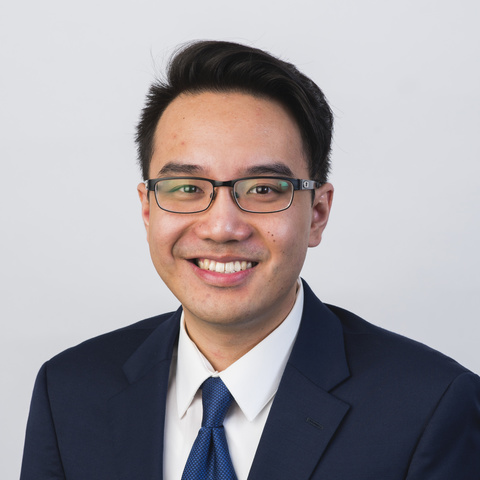
Dylan Nguyen. | 3L Law Student | University of Iowa College of Law
I am a Vietnamese American, born in Los Angeles, California. My parents arrived here from Vietnam right after the Vietnam War. They raised me in a relatively diverse area, so I was surrounded by Asian, Hispanic, White, and Black peers. I never experienced outright racism to my face, but I heard all kinds of underhanded jokes (i.e., microaggressions) regarding Asian stereotypes. Most of it was lighthearted, but it got tiring very quickly.
Still, I surrounded myself with a good group of friends. With their support (along with my family’s), I did well during high school. But when it came to career goals, I was a bit more lost.
My parents never completed college, and I didn’t have a mentor to help me think about careers before and during my first two years at UCLA. It wasn’t until I joined an on-campus pre-law organization did I seriously entertain going to law school. I heard about what attorneys did and the skills they used for their jobs. I thought I would be a great fit in the profession based on my interests and abilities.
Now during my 3L year, I couldn’t be any happier with my choice. I will be working at Fredrikson & Byron in Minneapolis after graduation. My practice area will likely be corporate/securities, mergers & acquisitions, and/or tax planning.
Being Asian American means a lot to me. I’m humbled to be a representative of the Vietnamese people who have a rich history of culture, food, and ways of thinking. At the same time, we are only asking to be treated with the same respect and dignity that all Americans deserve. No one deserves to be lifted on a pedestal, and no one deserves to be treated as less than human.
Since the pandemic, I’ve tried to keep a low profile in Iowa City. I continued to surround myself with wonderful people: my hometown friends and law school peers. Everyone at Iowa Law, ranging from my classmates to my fellow editors on the Law Review, has helped keep me sane. I haven’t experienced any outright racism or insensitive remarks here.
How can the Iowa Law community and others help?
Iowa Law can do so much just by being aware of the actual problem and giving support to communities that need it. The real bad guy is the virus, and the biggest victims are underprivileged communities, which are disproportionately made up of Asian, Hispanic, and Black people. Of course, giving support to minority students is important, but if Iowa Law can do anything to help the community at large, that would be wonderful as well. But at the end of the day, providing us with a safe space to study already does so much for our well-being.
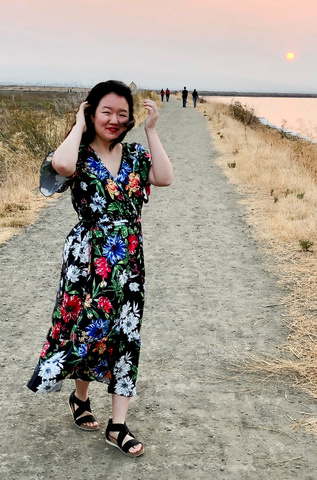
Ayako Nakano | 2L Law Student | University of Iowa College of Law
I have known for a long time that I care a lot about politics and social justice and wanted to work in something related to that. Law school was just the natural next step for me, when it came time to advance my career in something related to advocacy minorities and other marginalized communities. After law school, I hope to work with diverse people (such as in immigration law or plaintiffs side litigation) and/ or work in the public sector.
Being Asian American to me, is about loving my monolids and about showing respect and appreciation for foods of all cultures.
Internally, within the Asian American community, I believe there is a lot of work to be done about normalizing the receipt of mental healthcare. Outside of the Asian American community, while I have been lucky enough to avoid traumatic experiences personally, I have had friends in Iowa who have had “virus” yelled at them and have been berated for being “responsible” for bringing the virus to the country. Generally, my Asian American friends have expressed discomfort in being outside of the UI vicinity in Iowa. The political climate is also playing a large in role in my sister’s decision for where to go to school as well.
How can the Iowa Law community and others help?
Please understand that being a person of color at Iowa Law can be an alienating experience. Here are a few pointers:
I was a part of a law school organization that advocates for women and minorities. Despite the fact that we all met twice a week for most of this school year, about half of the board members mispronounced my name, (both in private and in front of the entire organization) throughout my entire involvement with the organization. Not one of them asked me about the pronunciation of my name. As the only women of color in the organization, the experience was uncomfortable and unwelcoming.
Please don’t ask me where I am “from” with an expectation of a particular answer. Definitely please do not ask me that, just so you can tell me about your trip to Tokyo or Osaka. While being Japanese American is something I value and am very proud of, there is also a lot more to me, and I don’t always want to this to be people’s primary takeaway about me.
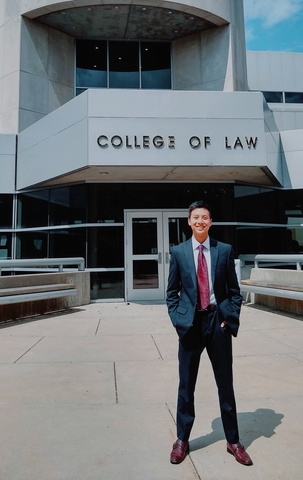
Ethan Chen | 3L Law Student | University of Iowa College of Law
I was born and raised in LA County and moved to Iowa City for law school. Law may embody our aspiration to promote justice and ensure progress for all. The law, in that respect, is noble and purposeful.
Luckily, AAPI participation in the legal profession has grown to comprise nearly 5% of lawyers nationwide. Still, AAPI communities struggle to break into leadership positions, both at the firm and the government level. AAPI communities have long faced exclusion from the legal profession. Always the marble, never the chisel. I hope in time, we will break through the glass ceiling.
I'm all-American, through and through, and I have ancestors from Asia. It's simple as that.
I can't speak for all AAPIs, though. Our experiences may be shared, but our identities are not. AAPIs comprise of over 30 countries and ethnic groups that speak over 100 languages.
Growing up, I wanted to hide my identity. But, like many other AAPI people, I’ve come to embrace my cultural heritage wholeheartedly. Violence, hate, and racism against AAPI communities have long persisted in American culture and legislation. Recent events have brought these issues into sharper focus. Hopefully, this allows us to engage in a dialogue that pushes us to overcome these issues. Through it all, I hope AAPI kids know they are beautiful inside-out and deserve to be treated that way.
Being Asian American also means dismantling harmful stereotypes and uplifting all BIPOC. The model minority myth hides Asian racism from the public consciousness and protects the existing racial hierarchy. More importantly, it tries to create rifts between AAPI and other BIPOC communities. Despite this, Black and Asian communities have long stood in solidarity against white supremacy. Let's be clear–Black and AAPI communities stand together against violence and racism.
Asian culture values resilience and humility, perhaps even in face of disparagement. It’s encouraging to see many AAPI leaders finally address these issues. Many of my AAPI colleagues faced racism in Iowa. However, in my experience, the faculty and students at the law school have made efforts to create a culture of acceptance and belonging. Certainly, we can all do more to raise awareness and to cultivate inclusivity at the school.
How can the Iowa Law community and others help?
Aside from donating and volunteering, I’ll offer some practical advice:
First, please advocate for all BIPOC and women in your life. We are fighting against racism, against sexism, and against misogyny. Remember to stay safe and stay calm, but please speak up in the face of injustice. Second, approach all communities with a high level of respect. For example, making your best effort to pronounce Asian names–if that's what they prefer–can help people feel genuinely accepted. Third, consider learning about the history of racism and discrimination in America. Let's continue these conversations, as difficult as they may be. Fourth and finally, open yourself up to Asian foods, art, and culture–you might just discover your next favorite thing.
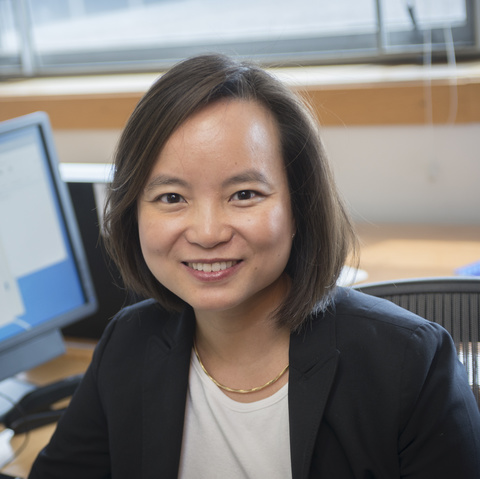
June Tai | Clinical Associate Professor | University of Iowa College of Law
I was born in and grew up in a Los Angeles suburb. I attended college in the San Francisco Bay Area and worked as an engineer in Southern California for a few years before going to law school in Chicago. I returned to the Bay Area to practice law. I handled complex civil litigation, primarily patent litigation. Ten years ago, my spouse decided he would like to teach and so he entered the academic job market. I moved to Iowa as a trailing spouse while continuing to work for my firm in San Francisco. After a year, I joined the legal department at Deere & Company in Moline, Illinois. In that role, I worked closely with engineers developing agricultural equipment. I learned all about corn, cotton, and cane farming, and I was privileged to meet with and learn about farming from farmers in Iowa, and around the world.
About four years ago, I joined the faculty at Iowa Law. I run the field placement program, which means I think carefully about how to bring practical experiences to students and bridge the perceived gap between the classroom and practice. Our students have the opportunity wrestle with real facts, draft briefs, meet with clients and revise contracts, and argue for their client's interests in court. These opportunities are a direct result of our partnership with many members of the Iowa Bar, and it allows students to get to know practitioners in the state as well.
I struggle with the term Asian American. It's a term of empowerment, to unify diverse groups, but I also worry the term hides the experiences of the numerous distinct ethnic identities and nationalities that fall within the umbrella. My family is Shanghainese. Both my parents were raised outside of mainland China, but I am a first generation American.
My hometown increased in population of Asian-American households while I was growing up and this created an opportunity to engage closely with my own cultural identity and learn about other cultures as well. Both my parents were politically active. I grew up switching quickly between speaking English and Mandarin in a single conversation, attending a Chinese church, and gorging on a wide variety of Asian snack foods when studying.
The pandemic has highlighted the racial disparities in our society. Perhaps because race has been on my mind so much, I think constantly about the unconscious ways in which bias plays out in day-to-day interactions for Asian American women. People talk with me about race in ways that suggest they forget that I identify as a minority.
Similarly, people talk to me about the immigrant experience as if I am unfamiliar with the struggles of immigrants. These small incidents highlight how Asians can be perceived as invisible. And, in turn, the racism that Asians face in America goes unrecognized and unchecked.
That said, I am hopeful that with the protests after George Floyd's death and the pain of the Atlanta shootings, we are collectively more aware of race and have the vocabulary to talk about combating racism.
How can the Iowa Law community and others help?
We all have a unique cultural identity and that carries biases. Educate yourself on your own biases and how bias manifests. By recognizing what this looks like, we can take the next step of working on and deploying strategies to interrupt bias - both on a micro, individual level and to effect change overall.
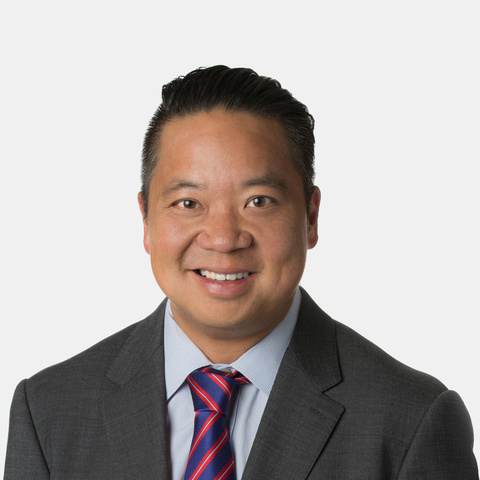
Mark Y. Liu | Class of 2005 | University of Iowa College of Law
As a first-generation immigrant, I am very happy to be living out my American Dream through hard work and perseverance.
Upon graduating undergrad, I worked as a legal assistant for a large law firm in New York before starting Iowa Law. At Iowa, I knew I wanted to focus on transactional law, specifically capital markets, and ideally with an international or cross border component. While interning at the SEC in Washington DC as a 3L, Bradley Houser (JD MBA ’87) made me an offer to join Akerman LLP in Miami. I worked and trained under Brad for six years before leaving for DLA Piper in Hong Kong, where I fulfilled my dream of working and living in Asia. Upon my return to the U.S., I rejoined Akerman in Los Angeles, focusing on capital markets and Asia-related work. I joined the Asian Business League of Southern California (ABL) and was elected President in 2020, and through ABL have helped uplift and support Asian-owned businesses of all sizes across SoCal. I enjoy my work and take pride especially in helping minority-owned businesses grow and evolve.
I hope we can level the playing field so more immigrants, females and minorities can have the same opportunities I have had to succeed. As Asian-Americans, we are too often overlooked. Now is the time that the AAPI community band together, support one another, and make sure we have a collective voice. During the pandemic, I feel fortunate not to have been directly attacked, but I certainly have friends and family that have been, either verbally or physically. I am doing my best to be protective and vigilant, but at the same time living life with my family in the new normal. I am lucky to live in one of the most diverse communities in America, which helps.
Luckily, I have not been directly attacked, but I certainly have friends and family that have been, either verbally or physically. As a family I am trying to be protective and vigilant, but at the same time living our life in the new normal. I am lucky to live in one of the most diverse communities in America, which helps.
How can the Iowa Law community and others help?
By creating awareness of the problem and reaching out to those AAPI in the Iowa family that are hurting. It’s nice to know that the university cares about our plight and wants to support us. Outreach, communication and checking in is the best way to show the AAPI community that we have allies.
